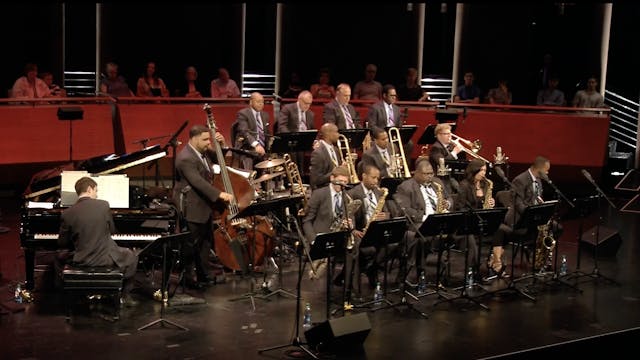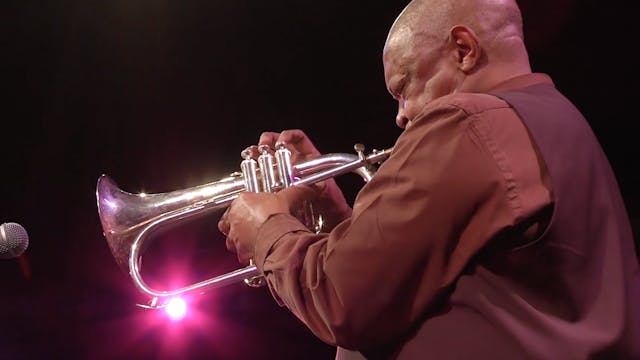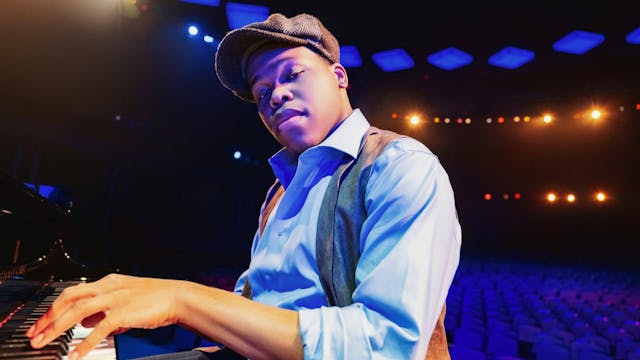Black, Brown, and Beige and The Best of Basie
Celebrate Black Excellence
•
1h 48m
The Jazz at Lincoln Center Orchestra with Wynton Marsalis play essential big band music by Duke Ellington and Count Basie. The first set finds the JLCO swinging through a number of classic Basie standards, including "April in Paris," "Swinging the Blues," and "Jumpin' at the Woodside." The second half of the concert will be a full performance of Ellington's groundbreaking masterpiece Black, Brown & Beige. Originally composed for his 1943 debut at Carnegie Hall, it was advertised as "Duke Ellington's first symphony," and Ellington described the powerful three-movement suite as a "tonal parallel to the history of the American Negro."
Originally performed April 27th, 2018.
Personnel
REEDS
Sherman Irby - alto saxophone
Ted Nash - alto saxophone
Victor Goines - tenor saxophone
Julian Lee - tenor saxophone
Paul Nedzela - baritone saxophone
TRUMPETS
Ryan Kisor
Kenny Rampton
Marcus Printup
Jonah Moss
Wynton Marsalis
TROMBONES
Elliot Mason
Chris Crenshaw
Sam Chess
Kaspari Sarikosi
RHYTHM
James Chirillo - guitar
Dan Nimmer - piano
Carlos Henriquez - bass
Marion Felder - drums
WITH
Eli Bishop - violin
Brianna Thomas - vocals
Up Next in Celebrate Black Excellence
-
Lush Life: Celebrating Billy Strayhorn
Legend has it that Billy Strayhorn (1915-1967) wrote the American songbook icon, “Lush Life,” at the tender age of 16. Though this early date has been disputed by some scholars, what isn’t in question is that Duke Ellington's first recordings of Strayhorn’s work were published when Strayhorn was ...
-
Hugh Masekela
The legendary trumpeter, flugelhornist, composer, and lyricist Hugh Masekela presented a retrospective extravaganza in Rose Theater to celebrate his 75th birthday and to mark the 20th anniversary of a democratic South Africa in this timelessly special performance from 2014.
Since his passing in...
-
Isaiah J. Thompson
This March, pianist Isaiah J. Thompson's first live album—The Power of the Spirit—is coming out on Blue Engine Records. "A young musician and composer with a mature touch and rare combination of talent, creativity, humility and honesty” (NPR), Thompson is an emerging, generational talent who has ...



